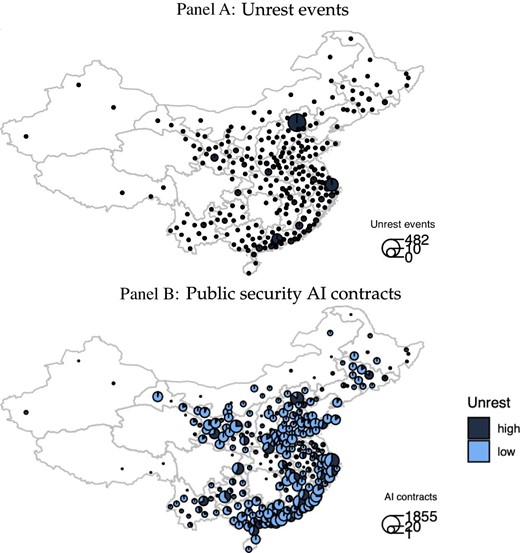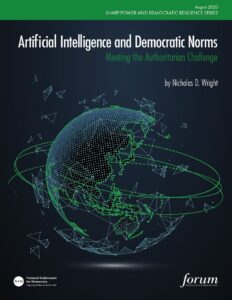
Credit: Quarterly Journal of Economics
China’s government has increasingly deployed AI-driven facial-recognition technology to suppress dissent, been successful at limiting protest, and spurred the development of better AI-based facial-recognition tools and other forms of software, according to a new study.
The case of China indicates how autocratic governments can potentially reach a near-equilibrium state in which their political power is enhanced, rather than upended, when they harness technological advances like AI, MIT’s Peter Dizikes writes.
Facial-recognition technology was being deployed in response to past protests, and then reducing further protest levels. “It suggests that the technology is effective in chilling unrest,” says MIT economist Martin Beraja, co-author of a new paper detailing the findings.
“What we found is that in regions of China where there is more unrest, that leads to greater government procurement of facial-recognition AI, subsequently, by local government units such as municipal police departments,” he adds.
 “AI innovation entrenches the regime, and the regime’s investment in AI for political control stimulates further frontier innovation,” says the open-access paper, “AI-tocracy,” which appears in the August issue of the Quarterly Journal of Economics.
“AI innovation entrenches the regime, and the regime’s investment in AI for political control stimulates further frontier innovation,” says the open-access paper, “AI-tocracy,” which appears in the August issue of the Quarterly Journal of Economics.
“In this age of AI, when the technologies not only generate growth but are also technologies of repression, they can be very useful” to authoritarian regimes, Beraja says.
“Artificial intelligence and other digital tools are changing how governments operate,” says Christopher Walker, Vice President for Studies and Analysis at the National Endowment for Democracy (NED).
“Digital technologies can be powerful tools for holding public officials accountable. But without transparency and public oversight, government collection and processing of digital data has the potential to weaken trust in government and erode democratic norms over the long term,” he adds, introducing an essay series (above) from the NED’s International Forum for Democratic Studies.
In regions of #China where there is more unrest, there is greater government procurement of facial-recognition AI by local government units such as municipal police departments, says @MIT economist @MartinBeraja. https://t.co/l3J7vry0PC
— Democracy Digest (@demdigest) July 13, 2023







